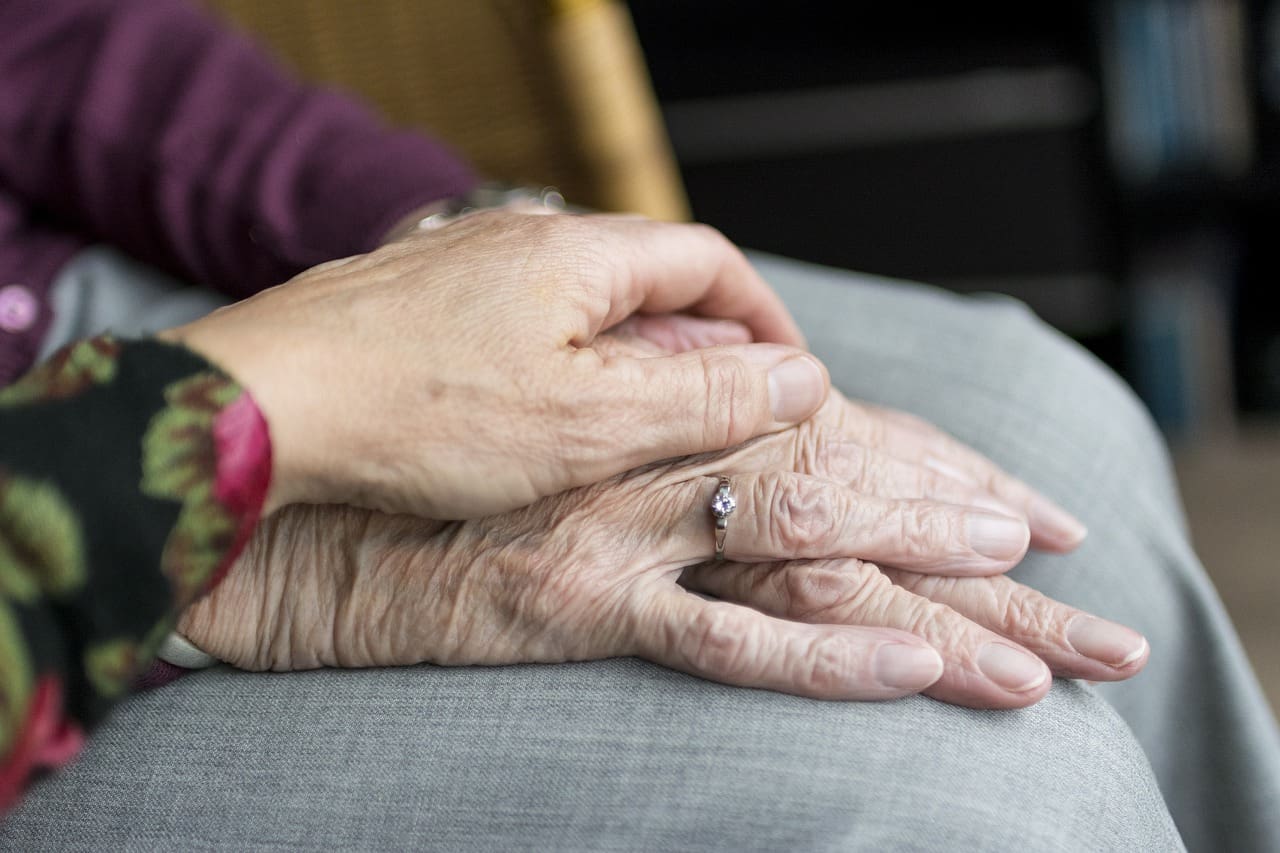
Do You Remember Your "First"?
Everyone remembers their first! Do you remember the first time your family order was reversed? The first time you felt like the parent and your parent seemed to be child-like? It could have been when Mom was flustered over getting that mouse-thingy to make the cursor move. Maybe it was when Dad asked for help doing something financial. It can be striking or unsettling. Maybe, only in retrospect, you can pin-point “that” moment.
Aging parents are a joy and a blessing that many of us share. If we are lucky, family members grow into a new routine with our aging parents. Talking and sharing as equals, watching kids and grandkids grow up, finding comfort together as adults. These are all special experiences that can be shared between adult kids and aging parents.
What are Some Signs of Aging?
However, as parents age, there may come a time when they need more help. Sometimes it’s hard to tell, and other times it is obvious. What can you and your family members do to prepare for and recognize that time? One thing is to be aware of some common signs.
As you watch for “signs,” also remember “frequency illusion” – the idea that something just discovered or reinforced suddenly appears everywhere! The adult children who scream at a parent who lost a set of car keys, “You have dementia! I’m taking your keys away!” is not as helpful as adult children who observe the whole person and circumstances before stepping in.
Balancing a loved one’s individual agency with stepping-in to help can be uncertain territory, especially with aging parents. Culturally, we often value youth more than age. Consequently, older people are sometimes pushed aside or overlooked because of their age. Have you heard an older person share that they feel invisible?
Older adults have been making independent decisions for their whole lives. For elderly parents to recognize a need and to allow others to help may not be immediately welcomed. Sometimes an aging person’s choices may not be what we would do, but they are also not harmful choices. For instance, the elderly parent who drives the beater-car through the yard to visit the neighbor is kind of kooky. Right? But then again, the older person recognized that her shaky driving skills would likely not hurt anyone (other than the flower beds), and the impromptu over-land route facilitated a much-needed social outlet with a neighbor.
We all have some brand of crazy. But when is that crazy actually cautionary? When should you consider if Mom, Dad, or an older friend needs extra help or special attention? When does a health issue become critical or develop into a health emergency?
The Signs of Aging Depend on Many Factors
The Caveats – and they matter. Lawyers are famous for saying, “it depends.” Here, it really does depend on several factors. Whether you are near or far from your parents, whether you see your parents daily or yearly, whether your parents have known or undiagnosed conditions, whether they live in their own home or in a nursing home, and other factors can impact your understanding and decisions to intervene. Remember too, practice some self-care. Many communities, including senior care communities, have support groups and care managers to assist family caregivers and loved ones. These support groups can help you determine when and how you can help and support your aging parents.
A final caveat – We are not doctors or healthcare advisors, and we recognize that every person and family are different. The list below is from our experience with aging people and their caregivers. Like many things in life, this list is not exhaustive, but we hope it is helpful.

7 Signs of Aging Where More Care May be Needed
1. Po-tay-toe or Po-tah-toe? It is not just pronunciation. If your parent answers a question or makes a statement that doesn’t sound right or is out of context, check to see if they clearly hear you. Aging adults want to participate fully and may be embarrassed to say they cannot hear. Hearing loss is common and is a bigger issue than we sometimes think. Loss of hearing can be frustrating, isolating, and can also relate to balance issues and loss of cognitive ability. Have a professional check your parent’s hearing. If possible, get a baseline test for your loved one so you can track the amount of deviation over time.
2. Drivin’ N Cookin’. No, it’s not a new, knock-off band your folks have joined. Be on the look-out for new or unexplained dings and scratches on the car. We have seen older people who mistook the gas for the brake, and who measured a parking space by tapping the car in front of them. Is your parent having trouble with spatial awareness, vision, or reflex control while driving? Also, see if the cooking pans are burned or never cleaned, or if the kitchen is not used as in the past. Forgetting what’s on the stove or losing interest in cleaning (of all kinds) may indicate a cognitive, physical, or emotional concern. A change in nutritional intake is also a sign that a person may be overwhelmed with shopping and cooking. These are not necessarily triggers to move your aging parent into a nursing home. However, this might be the time to discuss whether your parent is ready to hang-up the keys or get some extra help in the kitchen. These are signs to investigate further and consider whether a professional evaluation is needed.
3. Moody Blues and Reds – Dramatic or long-term mood changes may indicate an issue. Sometimes these are obvious, like an unexplained outburst. Other times the changes can be gradual, like a growing unease that turns into constant agitation. Increased agitation could be a sign of a urinary tract infection, or it may be a sign of a more serious condition, like dementia. Changes in medication, such as blood pressure medication, may alter moods. Older people sometimes have trouble articulating that they don’t feel well. When you have aches and pains in life, “one more in the basket doesn’t register,” said an older friend. Medical and psychological tests can help determine causes of mood changes. Don’t forget to confirm that your elderly parents have signed HIPAA forms so you can learn more about the results and proposed recommendations from their doctors.
4. Show Me the Correct Amount of Money – Many aging people know to be aware of scams. Even so, our parents’ generation’s sense of social norms and manners make saying “no” or hanging up on a hard-sale telemarketer incredibly challenging. Recent advice to “just don’t answer the phone” was met with skepticism from an older family member – “It must be important if they call me!” Falling for financial scams, bills that are late or don’t get paid, services that are cut off, or overpayment for services are all signs that a person may need some assistance. Expressing frustration or a reluctance to discuss financial things are also signs. How can you help? There are land-line phones with Caller ID that can block telemarketing calls. Some adult children take over the family checkbook and start paying parent’s bills. You can also help aging parents by setting up on-line payments that you monitor while they continue to manage paper-bills and payment. In some cases, you might discuss a financial power of attorney, and in extreme cases, a conservatorship might be needed. Your attorney can help with these decisions and documents.
5. Did Ya Hear (again) the One About? Like a great movie, a good story is worth hearing again. However, retelling the same stories or details multiple times, within a short timeframe may indicate a cognitive decline. Confusion over or forgetting skills that had been frequently used, like working with an iPhone or Kindle, or losing all interest in a loved past-time may be signs that a person needs help. Be careful to see whether there is a true loss of interest or instead, an inability because of cognitive or physical limitations. Addressing your observations directly with a parent is a great start. If this becomes a difficult discussion, a physician, therapist, or social worker might be useful to engage.
6. Not So Peace Out! When one elderly parent, typically the caregiver, leaves the other elderly parent in a situation they cannot handle safely, the care-giving parent may be at the end of their rope. The stress of caring for an aging spouse is compounded when a care-giving parent is also facing their own healthcare issues. The frustration may be expressed in several ways, such as angry words, physical confrontations, financial abuse, or abandonment. Try talking with your parents separately. Consider asking what events precipitated the incident. Is there another family caregiver who can provide temporary relief to the primary caregiver? Depending on the severity, you may need to consult with a professional.
7. Bruises, Cuts, Scrapes – Oh my! As family caregivers, have you seen unexplained bruises, cuts, or scrapes? Watch to see if your elderly parent has trouble standing up from a chair. Loss of strength and balance can contribute to instability and lead to bumping into things or even falling. Falls are especially dangerous for older adults whose bones are more brittle and for whom activity is essential to staying healthy. Bleeding may be hard to stop depending on certain medications. Also, watch for other muscle weaknesses or neurological changes, such as shaking that leads to spilling food or drink. When a loved one is no longer able to complete activities of daily living (ADLs) on their own, this may be a point of transition to increased assistance and care. Health care professionals can help you determine and diagnosis the root cause of these health issues and physical concerns.

Got Aging Parents? You Can Do This?
Remember, you know your aging parents. Gather the facts. Trust your instincts. Ask for help. As the saying goes, none of us gets out of here alive. If we are lucky, we’ll grow old and may face some of the same issues our parents face. Until then, we can be present and active in our parents’ lives. And when they need a little help, we might just be the one to recognize it and give it. You can do this!

